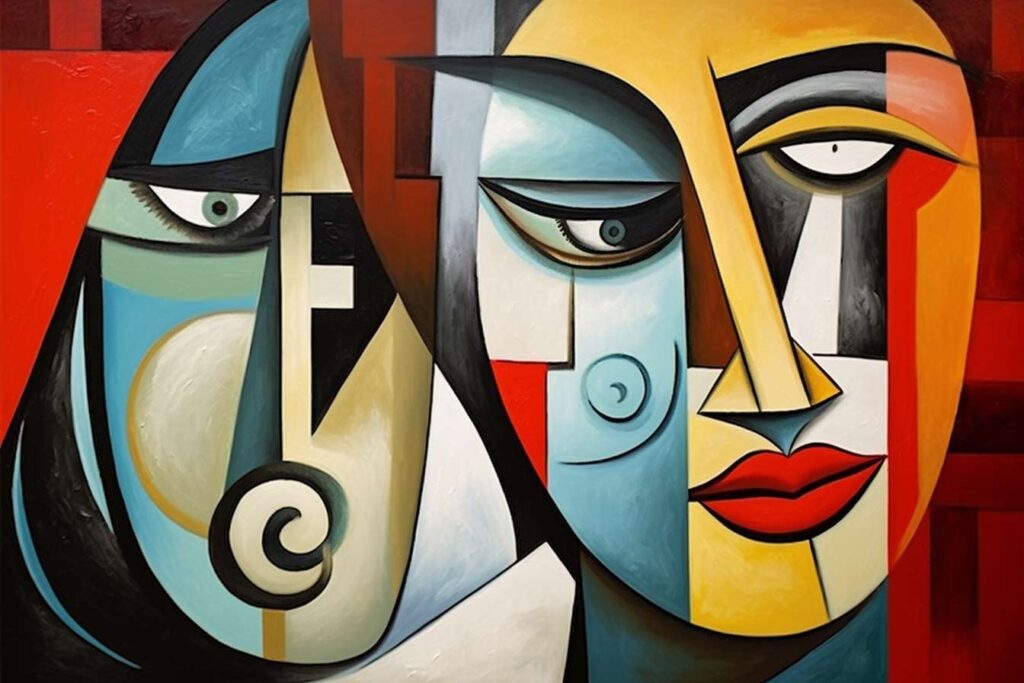The Unveiling of Reality
In this age of rapid change and shifting perceptions, there arises a style of artistry that does not merely imitate nature but seeks to dissect and understand it from a multitude of perspectives. Where older modes of painting sought to capture a fleeting moment or the exactness of a visage, Cubist portraiture takes a revolutionary approach: to capture essence rather than exactness.
Beyond the Literal
This is not the art of mere representation. It does not rely on the naked eye’s perceptions but delves into the depths of consciousness. Where one might see a vase, another might see a collection of lines, shades, and shapes, each telling its own story, each revealing a different facet of the object. To the uninitiated, these might seem a chaotic assembly. Yet, to those who dare peer deeper, they represent the myriad ways in which we perceive our world.
Embracing Abstraction
The move towards abstraction is not a move away from reality, but rather a journey into its very soul. By fragmenting and reconstructing objects and scenes, this style strives to depict not just what lies before our eyes, but what lies before our mind’s eye. It’s a bold venture into the complexities of perception and thought, challenging the viewer to not just see, but to think and feel.

Interplay of Lines and Forms
Notice how lines intersect and forms blend, weaving together a tapestry that is both familiar and foreign. In this dance of shapes and shadows, the boundary between object and space blurs, creating a harmonious play of positive and negative elements. This interplay is crucial to the spirit of abstraction – it nudges the viewer to find meaning and coherence amidst seeming disarray.
The Essence of the Familiar
Perhaps the greatest triumph of this style is its ability to render the familiar unfamiliar. By refracting reality through this prismatic lens, everyday objects become mysterious and multi-dimensional, inviting viewers to unravel their intricacies. The portrait, thus rendered, is not a mere depiction but an exploration – a celebration of the multifaceted nature of perception and reality.
In this embrace of abstraction and departure from literal representation, we are reminded of the limitless boundaries of human creativity and imagination. As we stand before a Cubist portrait, we are not merely passive observers but active participants in a dialogue with the very essence of reality.
